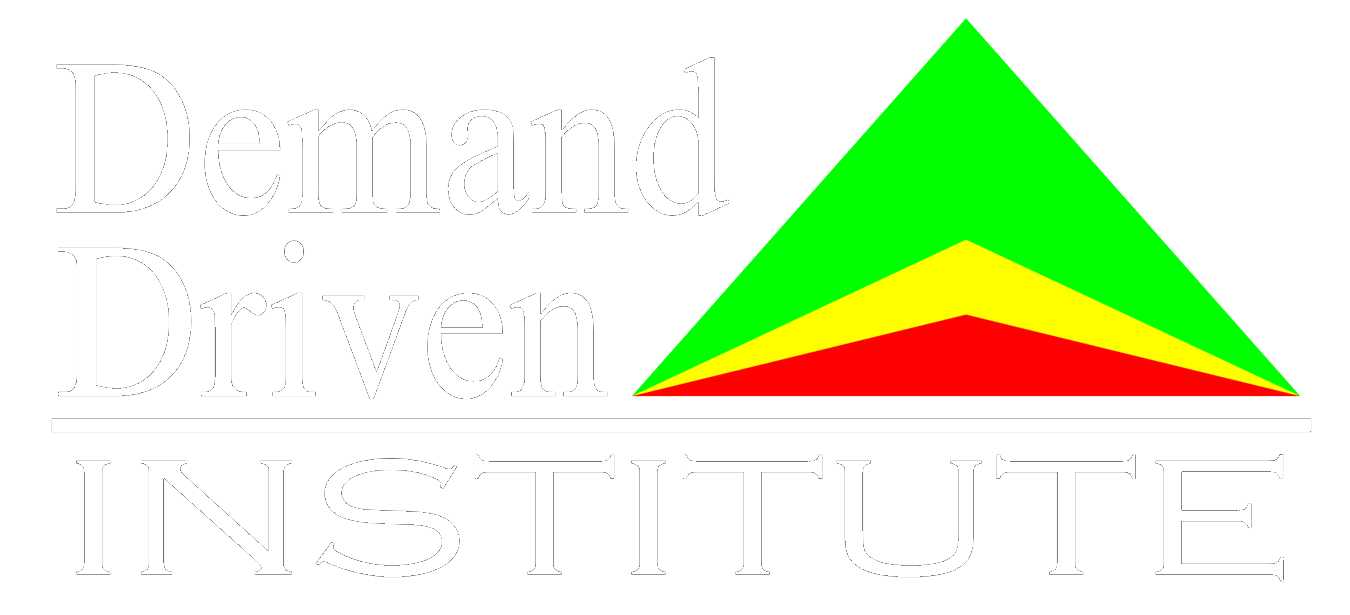Supply Chain Management
Transform your supply chain management
into the key to business success
Mastering Supply Chains Even in Turbulent Times
While business uncertainty is an ever-present challenge, supply chain leaders must build resilient supply chains that drive profitability and growth in today’s disruptive environment. In the area of supply chain management, Camelot is a global leader in end-to-end supply chain orchestration: From strategy, process, and application consulting to software implementation and adoption. Our capabilities span from demand forecasting and inventory optimization to production planning and supply chain resilience. We leverage cutting-edge tools to create supply chain visibility, allowing for data-based decision–making.
Supply Chain Management Consulting by Camelot
We Help Clients Succeed by Building Resilient Supply Chains
Discover how Camelot’s consulting services can support you in transforming your supply chain into the backbone of your business. Benefit from our integrated consulting approach, which combines deep industry, functional, and application knowledge.
Support the business goals of your company by choosing the right supply chain strategy.
Break down silos to enable cross-functional collaboration for supply chain efficiency and profitability.
Increase your supply chain resilience and efficiency by establishing the right organizational structure.
Introduce the right key performance indicators (KPIs) and performance metrics to gain supply chain visibility.
Discover new opportunities for managing your supply chain by combining human and artificial intelligence.
Supply Chain Strategy
Transform Your Supply Chain into a Value Driver
By aligning your supply chain strategy with your overall business goals, Camelot transforms your supply chain into a powerful engine, delivering value to your customers and stakeholders. That way, your supply chain becomes a competitive advantage.
Integrated Business Planning
Driving Cross-Functional Collaboration for Profitable Growth
Integrated Business Planning (IBP) is the evolution of Sales & Operations Planning (S&OP). It fosters a seamless alignment between operational and tactical activities with financial and strategic planning processes. This holistic approach leverages state-of-the-art methodologies and processes for key areas such as demand forecasting, demand planning, inventory planning, inventory optimization, supply planning, master production planning, procurement planning, and S&OP alignment. This results in improved decision-making and enhanced overall performance.
Analyze, Design, and Embed Integrated Business Planning Processes in Your Organization
By conducting a comprehensive assessment of your current planning capabilities — covering the key dimensions of strategy, structure, organization, processes, metrics, and data — and benchmarking them against best practices, we can identify significant improvement potential. A tool-supported data analysis, coupled with segmentation, will serve as the foundation for designing the end-to-end Integrated Business Planning process tailored to your unique business needs and ensuring consistency between operational, tactical, and strategic planning. The critical final part is embedding the revised processes, roles, and metrics into your organization and measuring your progress towards achieving business goals.
Industry-Specific Planning Challenges
As a supply chain specialist with broad experience in the process, consumer goods, industrial manufacturing, and high-tech industries, we possess deep understanding of your specific planning challenges and how to master them in the context of Integrated Business Planning.
From promotion planning and tender management to short shelf-life considerations, product variant complexity, cross-business unit dependencies, parallel sales channels, sporadic demand fluctuations, and many more, we have encountered and successfully addressed a wide range of challenges.
Integrated Business Planning Tool Selection and RFP Process
Camelot offers comprehensive support throughout your IBP transformation journey, encompassing a range of services: from requirements analysis based on industry-proven best practice IBP processes, through software comparison and evaluation, defining the overall IT architecture and roadmap to creating a benefit or business case, preparing an RFP, and ultimately, selecting the best vendor.
Outside-In and Collaborative Planning
To achieve the next level of maturity in Integrated Business Planning, you need to understand the external factors influencing your supply chain and extend supply chain visibility on the demands and flow of goods to suppliers and customers. This outside-in planning approach includes the identification of external data sources and associated machine learning (ML) models. Leveraging these resources enhances capabilities in areas like demand forecasting and demand planning, demand sensing as well as risk and resilience planning.
Moreover, outside-in planning involves defining collaboration scenarios e.g., with customers and sales platforms. This approach aims to enhance your understanding of demand latency and the difference between customer and actual consumer demand patterns.
CLOSING THE GAP BETWEEN S&OP AND FINANCIAL PLANNING
Unsynchronized processes, systems, and targets quickly lead to diverging plans in Financial Planning and Integrated Business Planning. Camelot provides integrated process design accompanied by preconfigured system solutions to achieve supply chain planning towards shared financial goals. Leveraging the knowledge of our experts from finance, supply chain management, and IT, we help you to turn decision-making towards shared goals across the organization into reality – based on consistent planning scenarios and the full integration of sales, supply chain management, and finance.
Embracing Sales and Operations Execution (S&OE)
High customer expectations in a world characterized by uncertainty and constraints have placed a strong emphasis on S&OE. While Sales and Operations Planning (S&OP) focuses on balancing the foreseen demand with available capacities within the tactical horizon, S&OE enables efficient decision–making within the operational horizon. In this way, S&OE empowers companies to address short-term supply chain challenges in a structured manner. By following given priorities, customer service and profitability are safeguarded.
Camelot supports you in strengthening your S&OE by ensuring seamless cross-functional information flow and alignment to facilitate data-driven decision-making. This positions your company to make swift decisions regarding short–term product to resource and product to customer allocation, while maintaining cost effectiveness and customer satisfaction.
Success Story: Evonik's Transformation to Achieve an Integrated Supply Chain
Evonik is one of the world’s leading speciality chemicals companies. They were undergoing a comprehensive supply chain transformation program to set up a best-practice supply chain organization. We supported Evonik to transform their supply chain to achieve organizational excellence, improve process efficiency and capacity utilization as well as increase service levels accompanied by lower inventories overall.
The secret to success included establishing the supply chain function and enhancing the global planning with IBP Response & Supply.
"A well-designed and structured supply chain organization, built on supply chain resilience and efficiency, is the backbone of success in today's dynamic business landscape."
Christophe Hudelmaier, Partner Supply Chain Transformation
Supply Chain Organization
Achieve Organizational Excellence and Deliver Delight to Your Customers
In today’s dynamic market environment, your supply chain organization is crucial for your company’s efficiency, profitability, and customer satisfaction. Camelot supports you in designing your organizational structure plus roles and responsibilities within the supply chain function to ensure alignment with your business objectives, promote cross-functional collaboration, and enable effective decision-making.
The optimal design and structure of your supply chain organization are essential to achieve efficiency, agility, and a competitive advantage. We help you to achieve organizational excellence by evaluating the following key aspects:
- Centralization vs. decentralization
We guide you in determining the optimum between centralized and decentralized control to balance standardization and local responsiveness. - Functional structure
We help you establish specialized functions, e.g. central demand, supply planning, and procurement, to deepen their knowledge and streamline processes. - Cross-functional collaboration
Guiding you during the creation of integrated teams that break down organizational silos, promoting innovation and faster decision-making. - Agile structures
We help you to implement flexible and adaptable structures that enable your supply chain to respond effectively to changing market conditions, while prioritizing innovation and collaboration. - Role clarity and accountability
We ensure a clear definition of roles, responsibilities, and decision-making authority within your supply chain organization. This minimizes ambiguity, maximizes accountability, and facilitates organizational excellence.
To maximize your supply chain efficiency and profitability, Camelot provides a broad range of services to unleash your full potential for efficiency:
- Implement Advanced Planning Systems (APS)
We guide you in implementing advanced planning software that automatizes and optimizes the planning processes within your supply chain organization. This APS software utilizes algorithms and optimization techniques to generate efficient plans, which reduces the need for manual intervention. By streamlining planning tasks, you can increase supply chain efficiency. - Centralize planning functions within your supply chain organization
Establishing a centralized planning team or Center of Excellence (CoE) fosters better coordination, standardization, and resource utilization across your supply chain organization. It also allows for economies of scale and specialization, which reduces the overall number of planners required. - Automate and digitize your supply chain
We streamline your planning activities by automating manual and repetitive processes, digitizing paperwork, and eliminating errors. That way, we improve your efficiency and free up resources to drive your strategic initiatives. - Standardize planning processes
Camelot helps you to standardize planning processes and workflows across your business units, regions, and product lines. By establishing consistent methodologies and best practices, we can streamline your planning activities, improve collaboration, and improve supply chain efficiency. - Optimize planning parameters
We review and optimize your planning parameters such as lead times, order quantities, safety stock levels, and reorder points. By fine-tuning these parameters based on historical data, demand patterns, and supply chain dynamics, your organization can achieve better planning outcomes and reduce work. - Utilize predictive analytics and machine learning
We help you harness the power of predictive analytics and machine learning algorithms to improve your forecasting accuracy and automate your decision-making processes. By leveraging data-driven insights, organizations can reduce the need for manual intervention in planning tasks, enabling planners to spend more time on strategic initiatives. Outsource non-core planning activities
We can guide you in outsourcing non-core planning activities, e.g. demand forecasting, to third-party service providers or consultants. This allows you to leverage external expertise and resources while reducing the burden on internal planners.Supply chain planning knowledge base
We take historical planning decisions made by your planners and combine them with insights from machine learning algorithms. This empowers your planners to make future decisions with greater confidence and accuracy.
Camelot’s scenario planning and simulation service empowers you to proactively assess your supply chain resilience and develop effective response strategies in the event of disruptions.
- Introduce scenario planning and simulation
We collaborate with your team to develop and test various scenarios to assess your supply chain resilience to different types of disruptions like natural disasters, economic downturns, or supplier issues. By simulating potential disruptions and their impacts, your team can better prepare and implement effective response strategies. - Increase supply chain visibility and transparency
By investing in technologies and systems that provide end-to-end visibility into your supply chain, your organization can identify potential disruptions at an early stage and respond quickly. This may involve the use of IoT, blockchain, and advanced analytics. - Enable redundancy and flexibility within your supply chain organization
Building redundancy and flexibility into your supply chain network enables you to quickly adapt to unexpected events. This may involve maintaining backup suppliers, alternative transportation routes, and flexible manufacturing capabilities.
Supply Chain Insights

IBP Time Series, IBP Order-Based? What is this?!
Order-Based Planning (OBP), this topic is the current development focus for SAP IBP developments. What is the difference to time series?

Digital Transformation of Order-to-Cash: What Comes Next?
The digital transformation of order-to-cash is currently on the agenda of many companies as is promises many benefits. But how can these benefits be realized?

Solving the Flavor Management Problem with the Supply Optimizer
This article shows how we leveraged the capabilities of a market-leading supply optimizer to effectively address the flavor management problem.

The Top Ten Pharmaceutical Supply Chain Planning Requirements
Learn more about the supply chain planning requirements that companies should implement in a pharmaceutical digital transformation.
Performance Management
Measure, Analyze, and Improve – 3 Steps Towards Supply Chain Excellence
Supply chain management is a complex function that requires a delicate balance of multiple performance dimensions to meet overall business targets. Service, cost, and inventory are widely known as key supply chain performance dimensions. However, in today’s fast-evolving market landscape, incorporating sustainability and resilience into the performance framework is just as crucial.
Structured performance management revolves around three key elements: defining the right performance metrics, analyzing current maturity, and implementing performance improvements.
KPIs and Performance Metrics
Improving the effectiveness and efficiency of your supply chain starts with gaining visibility of its current performance. Establishing the right key performance indicators (KPIs) and performance metrics is crucial to understanding your current supply chain performance and identifying areas for improvement. Our seasoned consultants support you in defining a balanced performance management framework that tracks and manages performance across your entire supply chain and involved functions.
Maturity Assessment
Identifying gaps in current supply chain performance is the cornerstone of achieving supply chain excellence. Learn more about our proven Maturity Assessment service offering.
Performance Improvement
In today’s volatile business environment, maintaining a competitive edge demands efficient and effective supply chain operations. Elevating the performance of your supply chain is not just about staying ahead — it is about driving tangible bottom-line results. Find out more about our consulting services for performance improvement.
Success Story: Improving Supply Chain Resilience at LEO Pharma
Resilient Supply Chain Performance through Value Chain Digitization
LEO Pharma is a global pharmaceutical company dedicated to advancing the standard of care for the benefit of people with skin conditions, their families, and society. The company’s ultimate objective was to establish end-to-end supply chain planning.
To help LEO Pharma achieve this, we addressed structural shortcomings in their supply chain and processes. The aim was to increase supply chain visibility, leading to a more resilient supply chain performance. This included reducing finished products inventory and enabling planners to orchestrate a larger number of products.

"With Camelot’s support and the use of their Demand Analyzer, we significantly improved our statistical forecasts within a very short timeframe. We were also able to automate forecasting for a large component of our product portfolio, reducing manual input. This project demonstrates the impact of a pragmatic design approach in global supply chain management projects.”
Alexander Prager, Group Vice President Supply Chain Management, MBCC Group
AI in Supply Chain Management
Next-Generation Planning Made Simple
Augment Your Planning Processes and Technology with Pragmatic Plug-and-Play AI Solutions in Supply Chain Management
Machine Learning in Demand Forecasting
Demand forecasting has long struggled to move beyond the capabilities of traditional statistical forecasting algorithms. But now, we are in a fascinating era where machine learning allows us to greatly enhance demand forecasting.
Camelot’s approach combines traditional statistical forecast algorithms with cutting-edge machine learning techniques. We offer a comprehensive suite of functionalities, including pattern detection, classification, outlier detection, level shift correction, two-stage models with demand drivers, demand sensing, cross-learning, feature-based forecast model averaging (FORMA), and more.
Ultimately, these advancements aim to empower you with significantly improved demand forecasting, leading to a reduction in stockouts and enabling well-informed decision-making within your supply chain management.
AI Assistant
We firmly believe that the combination of artificial and human intelligence in supply chain management will always surpass a purely AI-driven strategy which only focuses on AI and overlooks the invaluable contributions of human expertise. Therefore, we developed an AI Assistant that provides real-time feedback during the supply chain planning process. This not only enhances user acceptance but also incorporates a plausibility check for added accuracy.
Probabilistic Inventory Management
Classical planning approaches rely on a single, most-likely value. However, these approaches oversimplify the variance in demand, lead time, and inventory replenishment quantity. This potentially results in inaccurate decision-making regarding inventory management and inventory replenishment strategies.
Camelot uses probabilistic inventory management models that work with densities – meaning all possible values and their corresponding probability. By considering and visualizing the whole area of possible inventory positions, we significantly improve your planning quality and assist you in generating cost savings and optimizing your resource allocation.
Demand-Driven Supply Chain Management
Survive, Adapt, and Thrive in a World Full of Uncertainty and Disruptions
Demand-Driven Supply Chain Management (DDSCM) empowers organizations to achieve true demand responsiveness while optimizing service levels and cost efficiency. By implementing DDSCM, companies can potentially reduce inventory levels by up to half while maintaining their planned service targets. The ultimate realization of a fully implemented DDSCM system is the creation of a Demand-Driven Adaptive Enterprise (DDAE).
Camelot’s DDSCM approach fosters a new level of supply chain resilience, enabling businesses to effectively respond to market fluctuations and unforeseen challenges. Our services encompass all stages: from initial understanding and proof of concept to quantifying the business impact of your DDSCM implementation.
Explore and Understand DDSCM
Investing in your workforce is essential for achieving a successful Demand-Driven Supply Chain Management transformation. Camelot offers a comprehensive suite of training programs designed to empower your team with the knowledge and skills required to thrive in a Demand-Driven environment:
- Expert-led training by certified instructors: Our team of certified instructors possesses extensive industry experience and in-depth knowledge of Demand-Driven principles. They will guide your team through interactive learning modules, ensuring a thorough understanding of key concepts and practical applications.
- Leadership development through targeted workshops: We understand the crucial role leadership plays in driving successful change initiatives. Our leadership workshops equip your senior executives with the strategic insights and tools necessary to champion the Demand-Driven journey within your organization.
Evaluate Your Potential
Making informed decisions is critical for a successful business transformation. We offer a robust suite of Proof of Concept (PoC), Proof of Value (PoV), and Proof of Technology (PoT) solutions designed to provide you with the insights needed to confidently move forward:
- Tailored approach: We understand that every organization has unique needs. We work with you to define the intensity and goals of your PoC, PoV, and PoT, ensuring it aligns with your specific context and requirements.
- Building confidence through validation: To effectively assess the results within your organization and secure stakeholder buy-in, we recommend incorporating training programs alongside your PoC, PoV, and PoT. This empowers your team to validate the findings and champion the initiative internally.
- External validation for enhanced decision-making: Beyond internal assessments, we leverage our benchmarking database and industry references to provide you with an external perspective on the potential impact for businesses similar to yours. This approach gives you the confidence you need to make data-driven decisions regarding your DDSCM transformation journey.
Implement Demand-Driven Supply Chain Management
Achieving a successful transformation requires a strategic and measured approach. We offer a phased implementation plan that minimizes risk and maximizes impact:
To ensure the learnings from the pilot are transferable to the entire organization, we employ a multi-dimensional selection process for the pilot area. This involves identifying a representative sample that reflects the broader organization in terms of planning complexity, product variety, and planning maturity. Evaluating these various aspects during the pilot allows for a comprehensive assessment and facilitates a smooth and successful full-scale rollout.
Following the successful pilot, we guide you through a seamless global roll-out. This process considers the potential impact on existing projects and ensures smooth integration with your strategic planning and operational scheduling processes.
Educate and Train in Demand-Driven Supply Chain Management
Equip your team with the expertise they need to thrive in a Demand-Driven environment. Camelot offers a suite of certified Demand-Driven Planner™ (DDP) and Demand-Driven Leader™ (DDL) training courses designed to cater to your specific learning preferences.
Our instructors are certified professionals with extensive industry experience and a deep understanding of Demand-Driven principles. They will guide your team through interactive learning modules, ensuring a thorough grasp of key concepts and practical applications.
Choose the learning format that best suits your needs: We offer in-house training sessions conducted directly at your location, or on-site courses held at a Camelot office. This flexibility ensures your team can access this essential training with minimal disruption to your operations.

The DDI has dedicated itself to proliferating the Demand-Driven method throughout the world. To achieve this, we need strong partners like Camelot that bring exceptional Demand-Driven expertise and a global presence to the table.
Chad Smith, Co-Founder and Partner, Demand-Driven Institute
FAQs
Your Contact
Libor Kotlik
Managing Partner
Supply chain management (SCM) oversees the flow of goods and services. This encompasses everything from sourcing raw materials to delivering the final product to the customer. Effective supply chain management is critical for optimizing costs, ensuring product availability, and enhancing customer satisfaction.
Supply chain management works by strategically coordinating all stages of the supply chain. This includes managing suppliers, inventory levels, production schedules, transportation, and warehousing. By fostering collaboration and real-time information sharing, companies can identify and address inefficiencies throughout the entire process.
Supply chain management benefits businesses in numerous ways: It reduces costs through optimized inventory management and transportation planning. It improves customer satisfaction by ensuring on-time delivery and product availability. It also enhances agility by enabling businesses to adapt to market fluctuations and disruptions.
Cost reduction is a key strength of effective supply chain management. By streamlining processes, minimizing waste, and negotiating better supplier contracts, companies can significantly lower their operational expenses. Optimizing inventory levels further reduces storage and carrying costs.
SCM technologies and solutions empower businesses to streamline operations and boost efficiency. These include warehouse management systems, transportation management systems, and demand forecasting tools. By leveraging real-time data and automation, companies can optimize logistics, minimize errors, and gain greater visibility across the entire supply chain.
Camelot’s expertise lies in facilitating a smooth integration of new SCM solutions with your existing systems. Our team ensures seamless data flow and avoids disruptions to your ongoing operations. We prioritize minimizing downtime and maximizing the value you gain from the new technology.
Absolutely! Camelot tailors SCM solutions to fit specific industries and business models. We understand that each industry has unique challenges and requirements. By leveraging our deep industry, functional, and application knowledge, Camelot develops customized solutions and approaches that address your specific needs and unlock significant value within your supply chain.
DDSCM, or Demand-Driven Supply Chain Management, offers several advantages: It enhances your ability to anticipate and respond to customer demand fluctuations. This minimizes stockouts and overstocking, leading to improved customer satisfaction and reduced inventory carrying costs.
Integrated Business Planning provides significant benefits to companies: It fosters collaboration across various departments, leading to a unified approach to inventory management, production planning, and demand forecasting. This translates to improved efficiency, reduced costs, and a more responsive supply chain.

